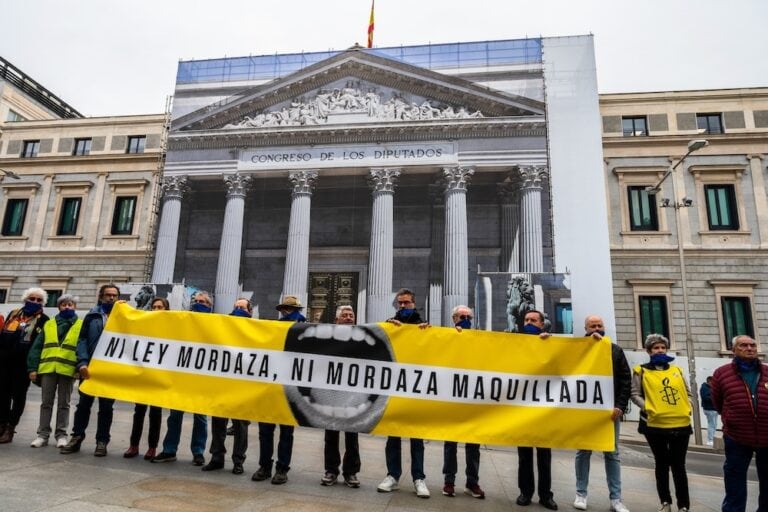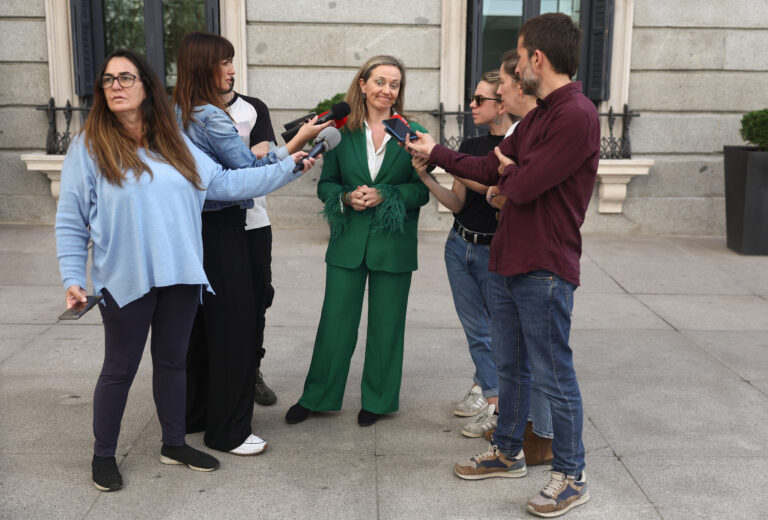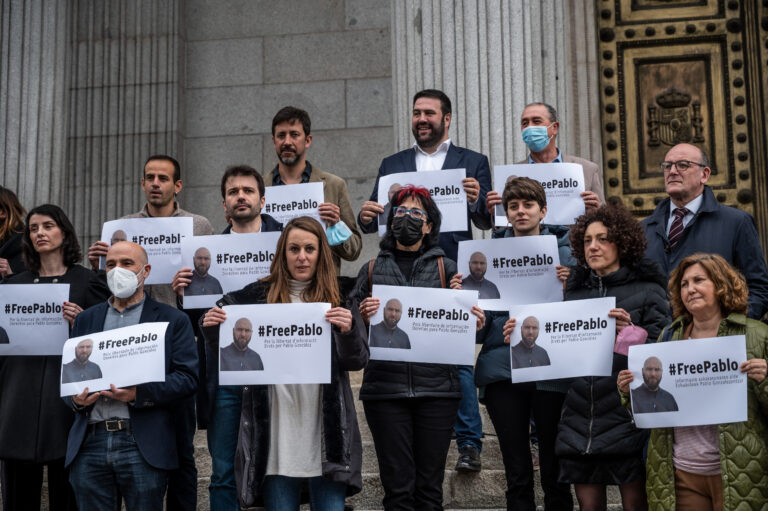(RSF/IFEX) – In a letter to Spanish Minister of the Interior Jaime Mayor Oreja, RSF expressed its outrage following the assassination attempts on Enrique Ibarra, vice-president of the Correo Press Group, Santiago Silván, director of Radio Nacional de España (RNE) in Spain’s Basque Country, and Marisa Guerrero, Antena 3 television station director in Spain’s Basque […]
(RSF/IFEX) – In a letter to Spanish Minister of the Interior Jaime Mayor Oreja, RSF expressed its outrage following the assassination attempts on Enrique Ibarra, vice-president of the Correo Press Group, Santiago Silván, director of Radio Nacional de España (RNE) in Spain’s Basque Country, and Marisa Guerrero, Antena 3 television station director in Spain’s Basque Country, on the night of 17 January 2002. “The terror campaign against media in Spain’s Basque Country is starting again. We ask again that you take all necessary measures to fight the way in which violence against the press has become an everyday fact of life in Spain,” stated Robert Ménard, the organisation’s secretary-general.
According to information collected by RSF, on the night of 17 January, the Autonomous Basque Police deactivated three parcel bombs apparently sent by the armed separatist organisation Euskadi ta Askatasuna (ETA) to the homes of media representatives in Spain’s Basque Country. The first parcel, which was sent to Ibarra, vice-president of the Correo Press Group, was found in Getxo at around 7:00 p.m. (local time), after Ibarra called police to report that he had received a suspicious parcel. After discovering the first parcel, the police interrogated the shipper, who told them that two other similar parcels were sent by the same sender, each recognisable by distinctive stickers of Confebask, the Basque employers’ union, on each parcel. The second parcel bomb was intended for Silván, the Radio Nacional de España (RNE) Basque Country director, who lives in Algorta. The third parcel was sent to Guerrero, who lives in Leioa and is in charge of the Antena 3 television station in Spain’s Basque Country. The parcels contained a quantity of dynamite comparable to that which seriously injured journalist Gorka Landaburu on 15 May 2001 (see IFEX alerts of 17 and 16 May 2001). The bombs were programmed to explode as soon as the parcels were opened.
The Correo Press Group and its journalists have been the target of repeated threats for several years and have also been attacked several times by radical independence groups linked to ETA. On the evening of 3 March 2001, about twenty Molotov cocktails were thrown at the headquarters of the Basque regional daily “El Correo” in Bilbao (northern Spain). No one claimed responsibility for the attack. About forty persons were working inside the building at the time but no one was injured. Several small fires were quickly contained (see IFEX alert of 5 March 2001). On 7 July 2000, a bomb exploded in front of the newspaper’s Vitoria offices. The explosion did material damage but no one was injured in the attack (see IFEX alert of 12 July 2000). The newspaper’s editor and some ten other journalists are currently exiled in Madrid. Radio Nacional de España (RNE) was also the target of an attack in 2000, when a bomb was sent to journalist Carlos Herrera at the station’s Seville newsroom (see IFEX alerts of 26 April, 29 and 28 March 2000).
RSF recalls that journalists are one of ETA’s favoured targets in its violent struggle against the Spanish state. In Spain’s Basque Country, just as in the rest of the country, including Madrid and Barcelona, Basque media outlets and journalists who do not share the group’s radical nationalist ideology are termed “traitors” or “Spanish invaders” and receive death threats. In 2000 and 2001, several journalists barely escaped death in bomb attacks that targeted them specifically. José Luis Lopez de Lacalle, a journalist from the daily “El Mundo” in Spain’s Basque Country, was assassinated in May 2000 (see IFEX alerts of 10 and 8 May 2000). Many threats and bomb attacks against journalists and newsrooms followed his assassination. On 15 May 2001, a parcel bomb exploded at the Zarauz home of Basque journalist Landaburu, a correspondent for the Madrid-based magazine “Cambio 16” and Radio France. He suffered serious wounds to his hands and face (see IFEX alerts of 17 and 16 May 2001). On the morning of 24 May 2001, Santiago Oleaga Elejabarrieta, chief financial officer of the Basque daily “El Diario Vasco”, was shot at point-blank range and killed in San Sebastian. He died instantly after being struck by two or three bullets in the Maria Hospital’s parking lot, in San Sebastian’s El Antiguo neighbourhood. The regional police attributed the attack to ETA (see IFEX alerts of 25 May 2001).
Close to 100 journalists are under official or private protection. A dozen media professionals from Spain’s Basque Country are “exiled” in Madrid and certain media outlets have introduced strict security measures, including bullet-proof windows and scanners.


